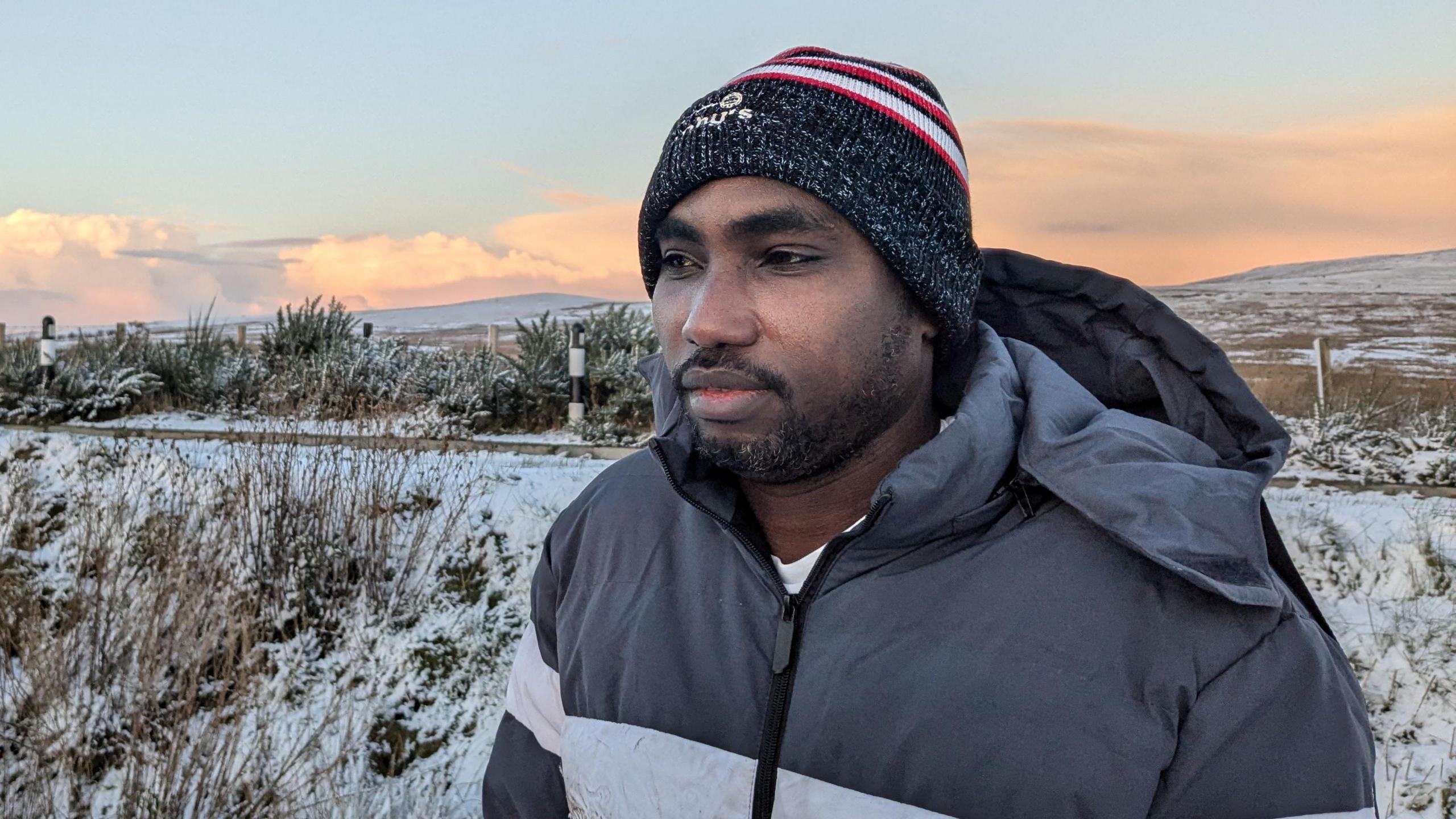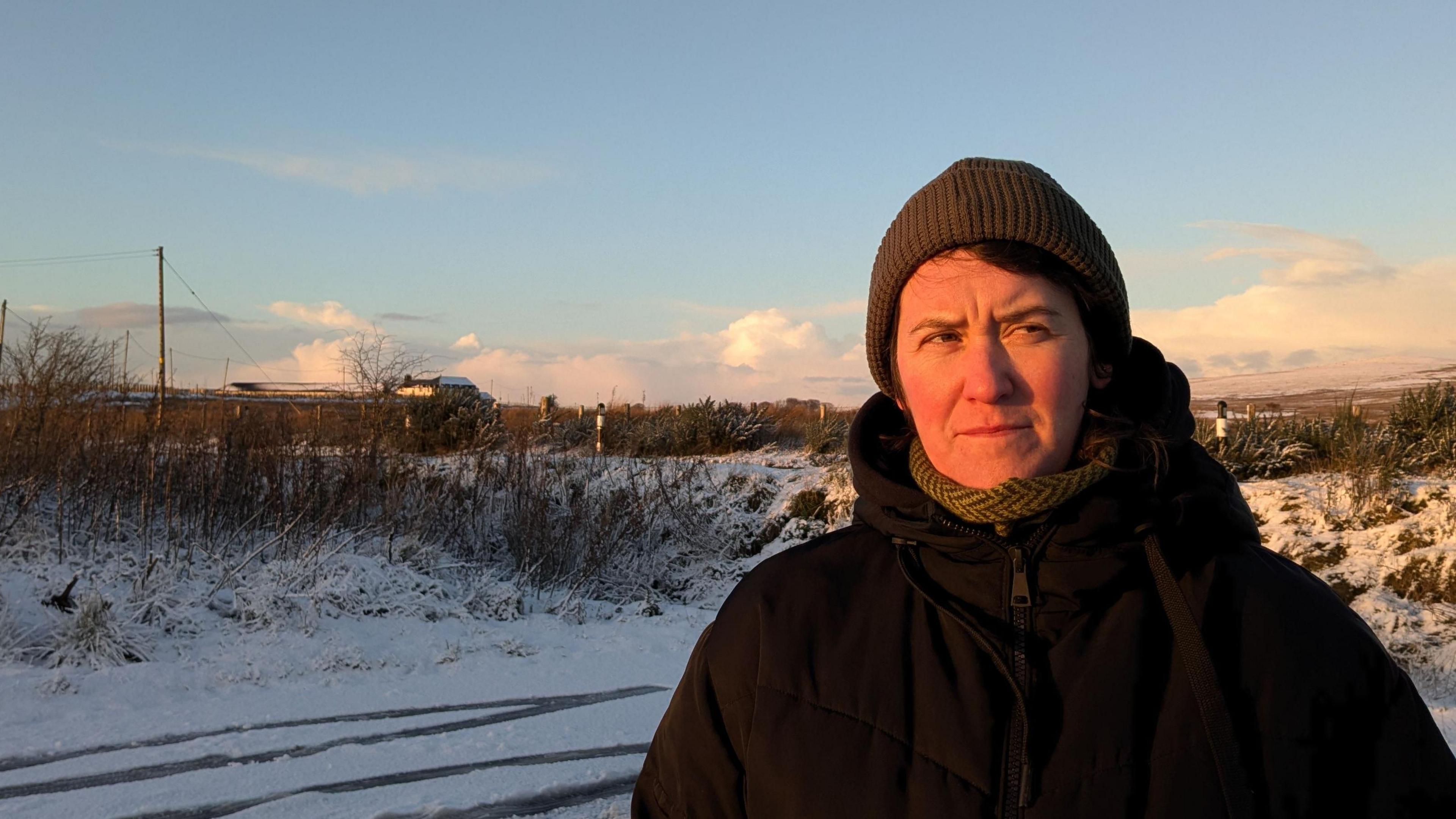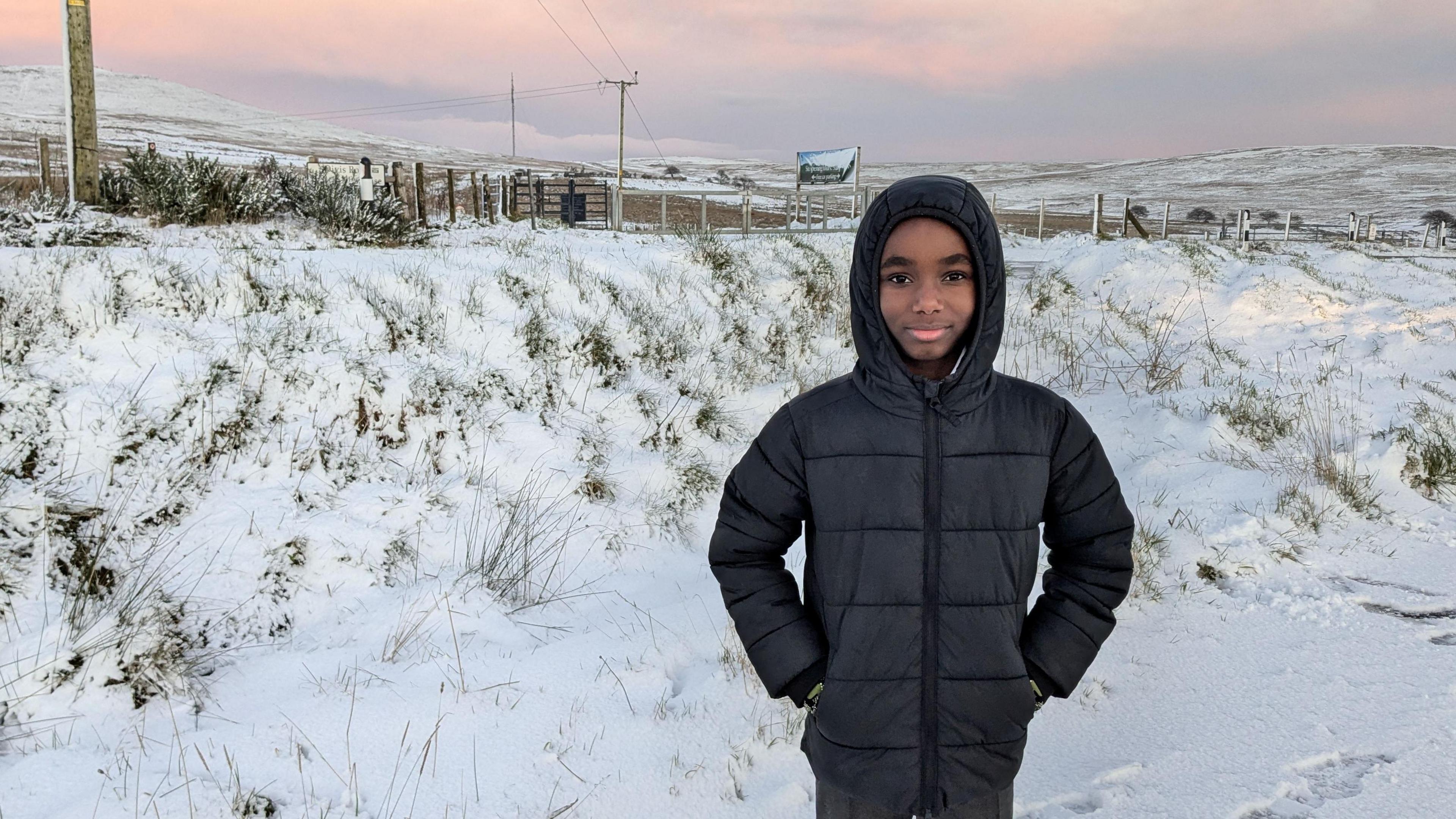Refugee family moved 60 miles have 'just one dream - a house'

Moheand and his family were asked to pack up and leave their accommodation on a cold and snowy day
- Published
A refugee whose family was asked to leave temporary accommodation in sub-zero temperatures has said his children "have just one dream - to have a house like other kids in their school".
Moheand, his wife and three children had to move 60 miles away to Portrush after staff at the hotel they were staying in, on the outskirts of Belfast, asked them to leave.
They say it followed a dispute when a documentary filmmaker asked the hotel if she could film inside with the family.
The hotel referred BBC News NI to the Northern Ireland Housing Executive (NIHE), who said it was "examining the circumstances around this case".
"We have been asked to find alternative, temporary accommodation for this household, which we have done," the NIHE added.
"We will continue to work with them in the days ahead."
Riyad, who is nine, translates for his family when dealing with the NIHE.
"All I want is to get a house, that’s all, beside my school," he said.
"Then I'll stop ringing the Housing [Executive] every time."
BBC News NI previously reported on Moheand's family when they were living in Newry, 35 miles away from the children’s school in Belfast.
Following that, they were given accommodation back in Belfast but have now had to move to Portrush, a place they had not heard of before Thursday.
Refugee family moved 35 miles away from school
- Published3 September 2024
Moheand said he came from Africa with his family "seeking to be safe and to find a home but now I don't feel safe and I'm homeless".
"I want to know, this struggle, when is it going to end?"
Moheand left Sudan because his life was under threat. He and his family lived in Northern Ireland for more than five years while waiting for their asylum claim to be processed.
After they gained refugee status, responsibility for the family's accommodation shifted to the Housing Executive.
They were moved out of Belfast to Belleek in County Fermanagh, then to Enniskillen, Newry and back to Belfast before being asked to leave and then housed in Portrush. In all these places, they stayed in hotels.
The children have stayed at school in Belfast throughout and the temporary nature of their accommodation means the family do not wish to re-enrol their children at schools where they are relocated.

Filmmaker Gillian Callan is worried the eviction was linked to her request to film at the hotel
On Thursday morning, freelance filmmaker Gillian Callan asked to film at the hotel where Moheand and his family were staying, for a community documentary-making project.
She says she was told she could not film on the premises, which she claims she adhered to.
But three hours later, the family received a phone call telling them they had to move out.
Ms Callan said she worried it was linked to her request to film.
"I felt sick, to be quite honest, when I realised that this was happening, and quite desperate for it to stop," she said.
"If there's another issue I'm unaware of it, which leads me to think that it's because I asked to film.
"The children are already telling me they could be late for school and they don't want to be late for school, and it breaks my heart for them that they’ve ended up in this scenario."
Gesturing to the snow on the ground around her, she said: "I think it's scandalous on a day like today to ask the family to leave."
Moheand, who had never driven in snow before this, said he would do so "because of my kids".
Riyad said he was "just going to try and see if [Portrush] is good".

Riyad has the best English in his family so he makes calls to the Housing Executive on their behalf
The campaigning group Participation and the Practice of Rights (PPR) said the case outlines how precarious housing is for many people living in Northern Ireland.
Twasul Mohammed, from PPR, said the organisation works with many refugee families whose temporary accommodation is "frequently too small, in poor condition and ill-suited for long term living" while they are waiting for a house.